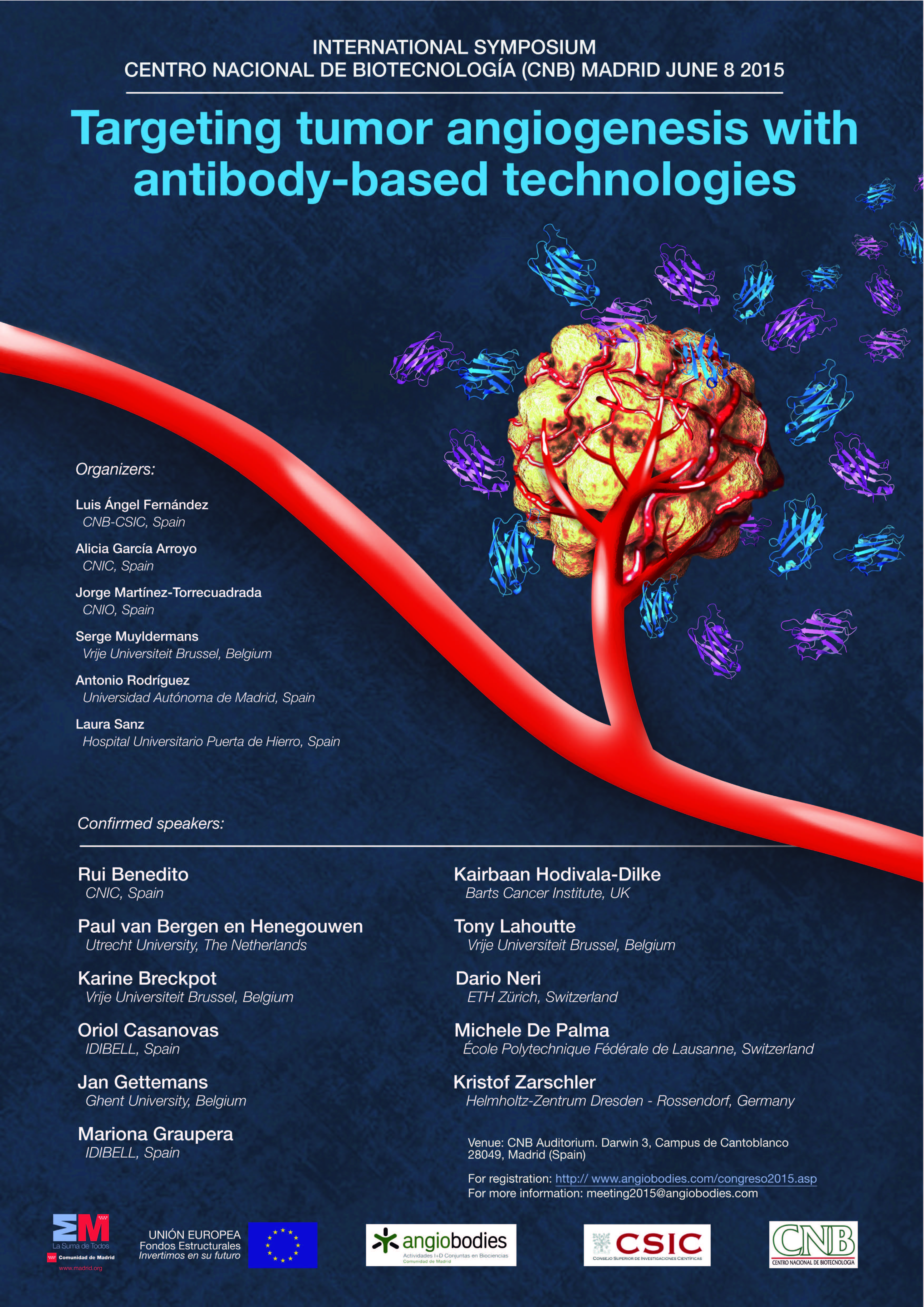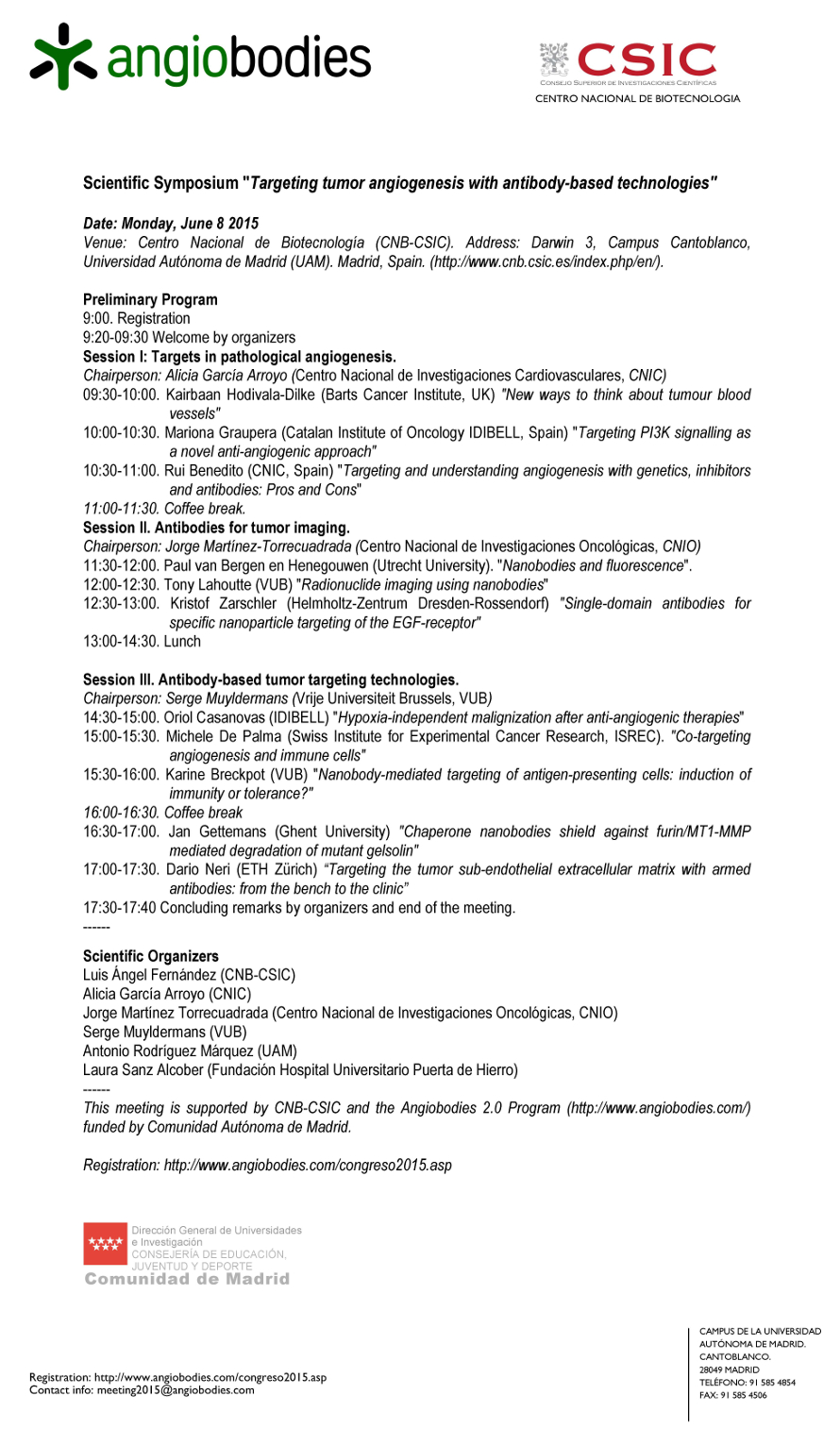Angiogenesis, the formation of new vessels from pre-existing ones, is essential to provide oxygen and nutrients to damaged and proliferating tissues.
 Tumor vessels have multiple structural and functional abnormalities compared to normal blood vessels. They are not well organized, show unusual leakiness, and are poorly functional contributing to increased tissue hypoxia. Since angiogenesis was proposed as a new target to ‘starve’ tumor cells, a greater understanding has achieved about the complexity of the cellular components and molecular pathways involved in tumor angiogenesis.
Tumor vessels have multiple structural and functional abnormalities compared to normal blood vessels. They are not well organized, show unusual leakiness, and are poorly functional contributing to increased tissue hypoxia. Since angiogenesis was proposed as a new target to ‘starve’ tumor cells, a greater understanding has achieved about the complexity of the cellular components and molecular pathways involved in tumor angiogenesis.
However, open questions and new challenges remain including inhibition versus normalization of the tumor vasculature, selective targeting of endothelial cells or other cellular players such as inflammatory cells, novel targets that could avoid tumor cell scape strategies to anti-angiogenic therapies, etc. Advances in new methodologies for the engineering and production of human recombinant antibodies are making it possible to image the tumor blood vessels and to provide new opportunities for delivering and targeting bioactive molecules and cellular subsets in the tumor vasculature in a selective and efficient way
In this event, which will be held in Madrid this coming June, experts from international research institutes will review the current concept of targeting tumor blood vessels, the potential of antibody-based therapies, and will try to identify future challenges in the field through an interdisciplinary approach.
PROGRAMME

